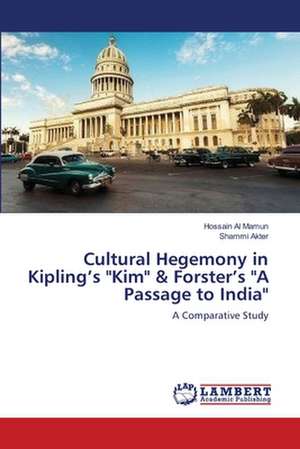Cultural Hegemony in Kipling's "Kim" & Forster's "A Passage to India"
Autor Al Mamun Hossain, Akter Shammien Limba Engleză Paperback – 24 feb 2013
Preț: 324.56 lei
Nou
Puncte Express: 487
Preț estimativ în valută:
62.10€ • 65.02$ • 51.39£
62.10€ • 65.02$ • 51.39£
Carte tipărită la comandă
Livrare economică 08-22 aprilie
Preluare comenzi: 021 569.72.76
Specificații
ISBN-13: 9783659352331
ISBN-10: 3659352330
Pagini: 104
Dimensiuni: 152 x 229 x 6 mm
Greutate: 0.16 kg
Editura: LAP Lambert Academic Publishing AG & Co. KG
Colecția LAP Lambert Academic Publishing
ISBN-10: 3659352330
Pagini: 104
Dimensiuni: 152 x 229 x 6 mm
Greutate: 0.16 kg
Editura: LAP Lambert Academic Publishing AG & Co. KG
Colecția LAP Lambert Academic Publishing
Notă biografică
Dr. Hossain Al Mamun is Associate Professor of the Department of English at Shahjalal University of Science & Technology, Sylhet, Bangladesh. He teaches British, American and Contemporary English Literature with an emphasis on Literary Theory. His specialized areas include Shakespeare, Mysticism, Post-colonial Studies and South-Asian Literature.
